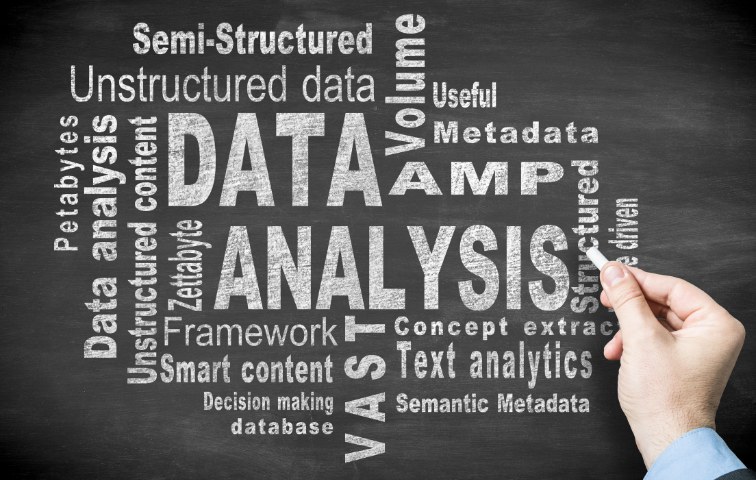
Top 10 Platforms for Young Aspirants to Master Data Analysis
Udacity
Real time SIM projects at affordable prices
Coursera
Experience affordable English language learning with great discounts
Udemy
Improve your conversational skills in 30 days with native speakers

- 7000+ world-class Courses
- Partnered with 275+ leading Universities
- Numerous beginner-friendly courses

- Trusted by 15000 Companies
- 75K+ Instructors and 220K+ courses
- Downloadable learning material

- 2.6+ Million projects submitted
- 205K+Nano Degree Certificates earned
- Content created by top tech-companies

- Rated #1 Data analytics certification by Forbes
- 60+ Data sets and Templates for Portfolio
- 6 Month free courses

- 1000+ expert Authors
- Up-to-date Content
- Covers a wide-range of topics

- 4000+ courses
- 260+ leading institutions
- Founded by Harvard and MIT

- AI Learning Assistance
- Mobile Friendly IDE
- Learn Code from any device

- 40000 graduates got jobs in top companies
- Prepare for the developer interview job
- 10,700+ tutorials

- Step-by-step Guidance
- Over 700K job listings
- Popular Learning Paths and Modules

- 1500+ Live classes every month
- 85% of Learners got new jobs or promotions
- World’s top universities and institutions
You can explore more about data analytics courses and the career opportunities that can be headed your way with the right skills and expertise.
How Did We Choose the Learning Platforms for You?
Instructor Qualifications: Most importantly, we have cross-checked the instructors’ qualifications, including their academic background and industry experience, to ensure that the platforms provide quality education.
Certification: I have thoroughly checked the certificates’ accreditation and what credentials they offer learners for career advancement.
Student Feedback: We value your opinions. That’s why we have read thousands of prior students’ reviews on Trustpilot and G2 to assess the effectiveness of the platform courses.
Pricing: Our List features platforms that harmoniously balance affordability and quality. We ensure that even the most cost-effective options deliver high-standard content, instilling confidence in the value of your investment.
Suits to all Skill Levels: Our list is inclusive and caters to all skill levels. Whether you’re a beginner, intermediate, or advanced learner, we have included platforms that suit your needs.
Frequently Asked Questions
What is data analysis?
Data Analysis studies big and complex data sets to make them simple and understandable for organizations. This will help gain insights into what data is trying to tell and what decisions need to be made for a future perspective. In short, a data analyst helps predict future scenarios and prevent significant losses. It’s all about numbers and how well you converse with them.
What do Data Analysts do?
Data analysts are responsible for analyzing and drawing insights from the data. This can include internal, competitor, or other third-party data. In a nutshell, a data analyst is responsible for four main things:-
1. Identifying market conditions, business direction, and defining policies to suit.
2. Highlighting challenges, industry trends, and the shifting needs of a company.
3. Optimizing business workflows and standardizing them across the company.
4. Interpreting data to highlight areas where IT and tech systems can be improved.
How much a Data analyst can earn?
Although there are numerous reasons why you should choose data analysis as your career path, a good salary package is enough to tell you why only data analyses are a good choice. Indeed, Google research shows that the average salary is $92,467 in the USA.
How can I become a Data Analyst?
To start your journey in Data Analysis, you need basic knowledge, which requires a minimum of a bachelor’s degree in a business-related field such as administration, accounting, or finance.
What skills and knowledge do I require to become a Data Analyst?
To be an expert data analyst, you need to have the following skills:-
Computing skills– Proficiency with MS Office software, especially Excel.
Programming Language– may include programming languages and frameworks like SQL, C#, Java, Oracle, etc.
Analytical skills– The ability to interpret and analyze data.
Research skills– Critically evaluate reports and documents to inform analysis.
Problem-solving skills– Identify the problems within a company, then work on devising potential solutions drawn from research and data.
What Jobs use Data Analysis?
Retail, healthcare, banking and finance, transportation, education, construction, and technology require data analysts. You can be a Data Scientist, Business Intelligence Analyst, Data Engineer, Quantitative Analyst, Data Analytics Consultant, Operations Analyst, Marketing Analyst, Project Manager, IT Systems Analyst, or Transportation Logistics Specialist.
How long does it take to learn Data Analyst?
It depends on your ability to learn new things and what you are trying to learn. If you are a fast learner, you can complete your course in a few months, but if you are trying to solve a complex problem, it can also take years.
Does Data Analysis require coding?
Data analysis in spreadsheet software like Microsoft Excel does not require coding. Analysts can execute their logic using basic mouse clicks in a graphical user interface. However, programming has become a natural pursuit for data analysts.
What software is used for Data Analysis?
Today’s most popular data analysis tool is Microsoft’s Microsoft Excel spreadsheet software. Other alternatives to Excel include Google Sheets and Apple Numbers. As business analysis needs scale, analysts often progress to working with programming languages.
What is the difference between Data Science and Data analysis?
Data analysis and data science both deal with data. Data analysts examine enormous data sets to identify trends, design charts, and create presentations to help businesses make strategic decisions about the future. On the other hand, data scientists design and build new processes for data and predictive modeling.
Our Best Pick





